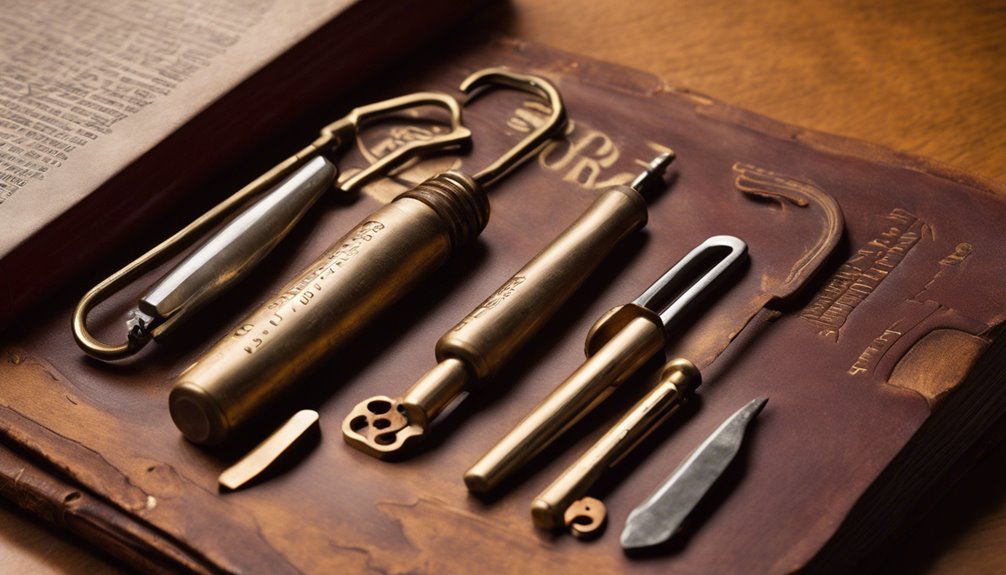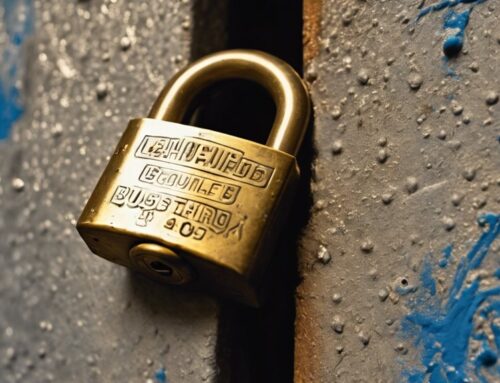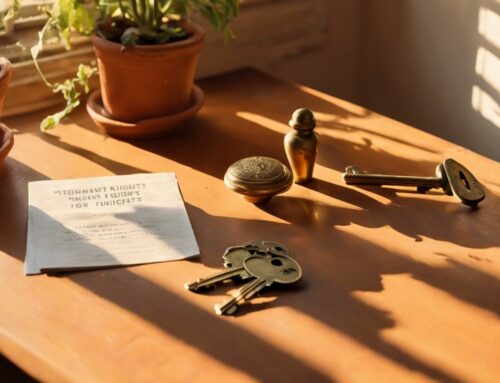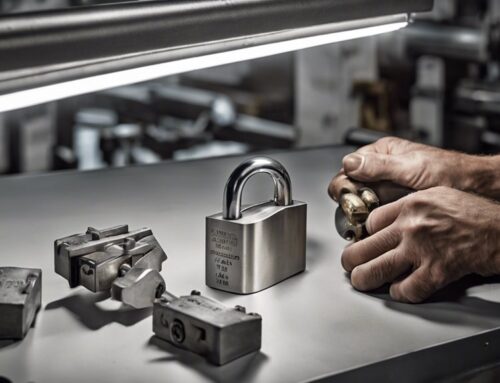When you're exploring the world of lock picking in Ohio, it's crucial to grasp the nuances of the law. While the act of picking locks isn't inherently illegal, the intent behind that action can put you at risk of serious legal trouble. You'll want to make sure you're only practicing on locks you own or those you have clear permission to pick. But what happens if you inadvertently cross the line? Understanding the consequences and best practices can help you navigate this legal landscape effectively. Let's take a closer look at what you need to know.
Key Takeaways
- Lock picking is legal in Ohio as long as there is no criminal intent associated with the tools.
- Always obtain permission before practicing on locks that you do not own to avoid legal issues.
- Proper documentation of activities and permissions can help demonstrate lawful intent and compliance with the law.
- Possession of lock picking tools may be seen as evidence of criminal intent, so storage and presentation are crucial.
- Regularly consult legal experts to stay informed about any changes in Ohio's laws regarding lock picking.
Legal Status of Lock Picking

While you may find lock picking to be a fascinating hobby, it's important to understand its legal status in Ohio. Lock picking itself isn't illegal, but the law gets tricky when intent comes into play. You can legally own lock picking tools as long as you don't plan to use them for criminal activities. The absence of a specific statute outright banning lock picking means you can pursue this interest without fear—if you're on the right side of the intent line. Additionally, understanding the rules surrounding changing locks post-eviction is crucial for anyone considering using their skills in a real-world scenario. Furthermore, keep in mind that digital locks have distinct legal considerations that may affect your approach.
Possessing lock picking tools with the intent to commit a crime transforms a harmless hobby into a criminal offense. Law enforcement will scrutinize your intentions, and proving your lack of criminal intent may fall on you if questioned. You're free to use these tools for lawful purposes, like locksmithing or even recreational practice. Public ownership of lockpicks can be illegal in some countries, so it's essential to remain aware of varying laws, especially if you travel.
However, practicing on locks you don't own requires explicit permission. Be cautious: using lock picking tools without consent on someone else's property is illegal and could lead to serious consequences. Misuse can attract legal actions, including fines or worse, depending on the circumstances.
Understanding Prima Facie Evidence

Understanding prima facie evidence is essential for steering through legal proceedings effectively, as it serves as the initial threshold that a plaintiff must meet. Originating from Latin, prima facie means "at first sight," indicating that this type of evidence appears sufficient at a glance to support a claim unless countered by additional evidence. In law, it is crucial for determining if a case can move to trial, ensuring that only cases with merit proceed.
In both civil and criminal contexts, it establishes a rebuttable presumption, allowing a case to advance if this initial burden is met. Understanding the importance of regulatory compliance in relation to prima facie evidence can further support a plaintiff's position in court. Specifically, key duplication laws in Ohio can serve as an essential part of such compliance, highlighting the need for security concerns when handling sensitive information.
As a plaintiff, you must present prima facie evidence for each element of your case. This includes proving the existence of a legal duty owed to you by the defendant, demonstrating that the defendant breached this duty, showing that you suffered an injury, and establishing causation linking the breach to your injury.
If the court finds your evidence compelling during pre-trial hearings, the case is likely justified to proceed. Conversely, if you lack sufficient prima facie evidence, the court may dismiss your case.
Once the prima facie case is established, the defendant is compelled to address and potentially overcome this evidence to prevail. The judge's role is to scrutinize the sufficiency of the presented evidence, determining whether it warrants further trial proceedings or dismissal.
Permitted Uses of Lock Picking

- Legal Ownership and Possession: You can possess lock picking tools without a license as long as you have no criminal intent. You may purchase them online or at shops and use them for lawful purposes like locksmithing or hobbyist activities. It is important to note that employment laws in Ohio also emphasize the necessity of ethical practices in your use of these tools.
- Locksmithing and Professional Use: If you're a locksmith, you can employ lock picking tools as part of your services. While a license isn't required, you must demonstrate proficiency and adhere to safety regulations in your work, and ensure you are aware of the legal status of lock picking tools in your state.
- Hobbyist and Personal Use: As a hobbyist, you're free to practice on your own locks or those you have permission to manipulate. Just make sure you follow local regulations to avoid landing in legal trouble.
- Law Enforcement and Authorized Activities: Law enforcement personnel can use lock picking tools during their official duties, but explicit permission or legal authority is essential for any such use.
Restrictions and Possible Penalties

Although you may possess lock picking tools legally, understanding the restrictions surrounding them is essential to avoid consequences. The possession of such tools can be *prima facie* evidence of criminal intent. This means that simply having them might suggest you're planning to commit a crime.
If you're found in possession of lock picking tools, you'll need to prove that your intent is noncriminal, which shifts the burden of proof onto you. Concealing these tools can complicate your legal standing even further.
In Ohio, landlords must also navigate laws that dictate how and when they can change locks on rental properties, including respecting tenant rights during such processes. The legality of possessing lock picking tools hinges notably on your intent. Without a valid reason—such as being a locksmith—you risk facing serious legal repercussions. If you have a past criminal record, it could influence how law enforcement perceives your intent, as they might view your tools in the same light as burglary tools.
If your possession is deemed unlawful, penalties can include fines and even jail time, with severe outcomes for felony charges. Repeat offenses usually lead to stricter consequences.
Should you find yourself charged, it's imperative to demonstrate that your tools weren't intended for criminal use. The legal system often requires substantial evidence supporting your claims. Consulting a legal expert is highly advisable to navigate these complex laws. Additionally, understanding Ohio's lock standards and regulations can further help you ensure your practices comply with local laws.
Key State Regulations and Statutes

When maneuvering Ohio's regulations on lock picking, it's important to grasp both the legal framework and the nuances surrounding possession and intent.
In Ohio, lock picking is legal, but possessing the tools requires caution. You need to be aware that if you're caught with lock-picking tools, you'll need to prove that your intent isn't criminal. This key distinction underscores the significance of understanding your legal standing. Certified technicians can provide essential support if you find yourself in doubt about your rights regarding lock picking.
Here are some important points to keep in mind:
- Legality: Lock picking is permissible, yet intent matters.
- Tools as Burglary Aids: Tools can be seen as burglary instruments only if there's intent to commit a crime.
- Permission: Always make sure you have explicit permission from the lock's owner before attempting to pick it.
- Possession Proof: You may need to counter prima facie evidence of intent to commit a crime based on tool possession.
Ohio doesn't mandate a licensing requirement for locksmiths, although proficiency is important; you'll have to take a certification exam. Additionally, many individuals rely on licensed mobile locksmith services for safe and professional assistance with lock issues.
Remember that while individuals don't need a vendor's license, businesses do. Certain legal categories allow possession of lock-picking tools more freely, including certified locksmiths and law enforcement.
Understanding these elements lets you navigate the complex web of regulations surrounding lock picking in Ohio. Staying informed will help you enjoy your rights without inadvertently crossing legal boundaries.
Best Practices for Compliance
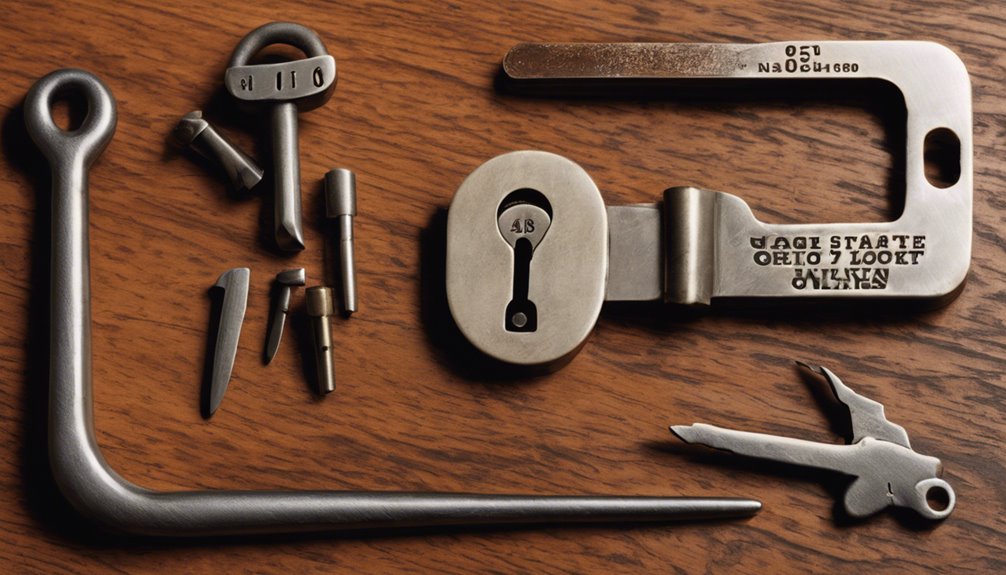
To guarantee you comply with Ohio's lock picking laws, it's crucial to follow established best practices that emphasize legal intent and ethical behavior.
First, understand that owning lock picking tools in Ohio is legal only if you can prove noncriminal intent. Always be prepared to demonstrate your lawful purpose—whether for locksmithing, personal use, or other legitimate activities—by maintaining clear documentation of your activities.
Avoid unauthorized use of your lock picking tools. Only pick locks that you own or for which you have explicit permission. Unauthorized access to any property, whether residential or commercial, can lead to serious legal consequences.
Additionally, be mindful that any damage incurred while attempting to pick a lock can further complicate your legal standing. Locksmiths in Ohio often face scrutiny to ensure compliance in their practices during real estate transactions.
Transparency is crucial. Keep detailed records of your interactions involving lock picking, including permissions and ownership documentation. When using these tools, store them securely and discreetly to prevent misunderstandings.
If necessary, inform relevant authorities or property owners before utilizing lock picking tools to maintain goodwill and clarity.
Moreover, always adhere to ethical practices. Avoid picking locks that are actively in use to prevent damage or legal issues. Confirm you conduct all lock picking activities for lawful purposes, and stay informed about any changes in Ohio's regulations.
Seeking Legal Guidance

It's crucial to stay informed about Ohio's lock-picking laws to avoid unintended legal issues.
When in doubt, consulting an attorney can clarify your rights and responsibilities regarding lock-picking tools.
Being proactive in seeking legal guidance not only helps you navigate the complexities of the law but also safeguards against potential consequences.
Importance of Legal Awareness
Maneuvering the intricacies of Ohio's lock picking laws demands a strong awareness of legal implications, as ignorance can lead to unintended consequences.
Understanding what constitutes lawful versus unlawful use of lock picking tools is essential for avoiding legal pitfalls. Here are key considerations to keep in mind:
- Possession of lock picking tools can be considered prima facie evidence of criminal intent.
- You bear the burden of proving your lack of unlawful intent if charged.
- Explicit permission is vital before attempting to pick locks that don't belong to you.
- Engaging in lock sport is acceptable only if done within legal boundaries.
When to Consult Attorneys
While maneuvering through Ohio's lock picking laws, it's important to know when to seek legal guidance. If you own lock-picking tools, remember that their mere possession can signal criminal intent, prompting a need for an attorney's expertise to counter such assumptions.
Ohio's lack of clear statutes can leave you vulnerable, making legal clarity essential.
When facing potential charges, such as unlawful entry or possession with intent to commit a crime, consulting an attorney becomes vital. They can help you steer your defenses effectively.
If you're a locksmith or aspiring professional, adhere to licensing requirements by seeking legal advice to guarantee compliance.
For hobbyists, clarity on the legal boundaries is imperative. Practicing lock picking on private property without permission could lead to significant legal issues. Obtaining explicit permissions is crucial, and an attorney can guide you in defining those permissions appropriately.
Don't let misinterpretations of your intent jeopardize your freedom. An attorney's guidance can protect your rights and ensure you remain within the law.
Frequently Asked Questions
Can I Carry Lock-Picking Tools for Personal Use in Ohio?
Yes, you can carry lock-picking tools for personal use in Ohio.
Possession is legal as long as you don't intend to use them unlawfully. You're allowed to practice or use these tools on locks you own or have permission to pick.
Just remember, the key factor is your intent. Confirm you comply with local laws to avoid any legal issues.
Always be mindful of how you use those tools to stay within legal boundaries.
Are There Any Exceptions for Minors Using Lock-Picking Tools?
When it comes to minors and lock-picking tools in Ohio, it's crucial to grasp the nuances.
While there's no age restriction, possessing these tools comes with the same grave responsibilities as for adults.
A minor can own lock picks, but using them without explicit permission or for illicit purposes can lead to serious consequences.
Always remember, intent matters most.
Make sure you're using them ethically to avoid legal trouble and uphold your freedom.
What Should I Do if I'm Questioned by Law Enforcement About My Tools?
If you're questioned by law enforcement about your tools, stay calm and cooperate. Clearly explain your legitimate reasons for possession, like locksmith services or recreational use.
It's essential to provide identification and any necessary documentation proving your intent. Avoid contradictory statements or suspicious behavior.
Do I Need a License to Practice Lock Picking on My Own Locks?
You won't need a license to practice lock picking on your own locks—no bureaucratic hurdles trapping you!
In Ohio, you're free to hone your skills without formalities, as long as you're not using those tools for nefarious reasons.
Just remember, ownership isn't permission to break in; you should stick to locks you own or have explicit permission to manipulate.
Embrace your hobby responsibly, and you'll remain well within legal boundaries!
Is There a Specific Age Requirement to Possess Lock-Picking Tools in Ohio?
There isn't a specific age requirement to possess lock-picking tools in Ohio.
You can own and use these tools regardless of your age, as long as your intent remains lawful.
Possessing them for purposes like locksmithing or with permission from lock owners keeps you on the right side of the law.
Always guarantee you're using your skills responsibly to avoid any legal repercussions while enjoying your freedom to practice lock picking.
Conclusion
In maneuvering Ohio's lock picking laws, you've got to tread carefully, like walking a tightrope. By understanding the legal nuances and maintaining transparency, you can enjoy your hobby without stepping into legal trouble. Remember, you're responsible for your actions and intentions, so always practice ethically and within the law. If in doubt, seeking legal guidance is the safest route. Stay informed, stay compliant, and you can release the thrill of lock picking without the fear of repercussions.

